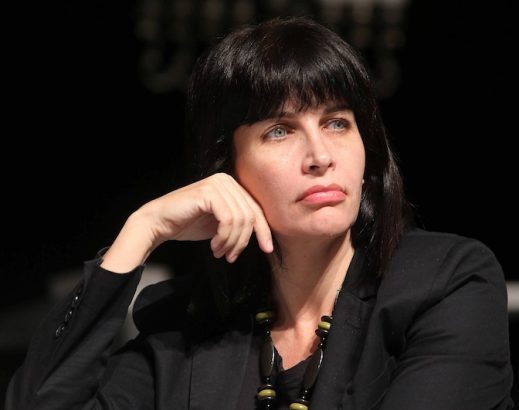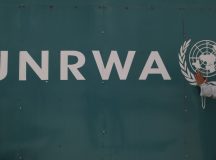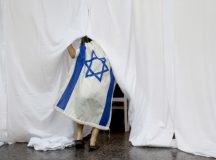Einat Wilf’s regular column – dispatches from a roving ambassador for Israel – asks how to win the battle of ideas and images waged in the TV studios and social media during times of conflict.
This summer, all of Israel’s ambassadors, official and not, stationed and roving, moved from ‘regular defense’ to emergency mode. While the soldiers of the Israel Defense Forces (IDF) were fighting by air, ground, and sea to defend Israel’s citizens from threats from above and below, the self-enlisted soldiers in Israel’s Intellectual Defense Forces, of whom I am one, mobilised on the airwaves, press and social media to stand up for Israel and Zionism. My uniform consisted mostly of a standard navy blue suit. I faced no danger while in the studios (unless the siren for ‘Color Red’ went off, as it frequently did). But the stakes were high; winning this ‘other’ war of words, images and ideas was no less important than winning the military campaign. The Prime Minister himself defined it as one of four fronts: military, home, media and legal.
As I made my way through the television studios – tough interviews at the BBC and Sky News, truly hostile ones at Al Jazeera and Russia Today – I felt that everything counted, from the suit I wore to the facial expressions I made. I was not just an expert but an Israeli and everything I said reflect not just on me but on my country. But there was no time to explain Israel’s situation. The in-depth talks I had given to engage audiences all over the world about the story of Zionism and the meaning of Israel’s existence were just not possible. In wartime it all became black and white; complexity was out and nuance was absent. There was no history, no context, and no real conversation; only images devoid of context, words devoid of meaning, allegations devoid of proof, and ancient libels revived.
There is no such thing as ‘fighting fair’ in this war of words and images. Experience has taught me that expressing empathy for the other, accepting responsibility for mistakes on our side, and acknowledging legitimate concerns by the other side, is abused to paint Israel in the darkest colours of evil. The word ‘sorry’ will be used to admit culpability; the word ‘mistake’ to convey evil intentions; the words ‘we are not sure’ to mean that we are sure of the opposite.
Hamas had a sinister strategy for their military and media campaigns. For the violent war in which our soldiers were fighting, Hamas placed rockets in their civilian areas and built tunnels into our civilian areas. In the media war Hamas terrorised journalists reporting from their midst in order to censor every image of militants, every picture of rocket launchers stationed in playgrounds, and every video of a rocket being launched from a school. All that got out of Gaza were images that suggested Israel was carrying out motiveless attacks on women and children. The ancient blood libels at least put forward a reason for the Jews killing Gentile children; they needed to use their blood to bake their weird bread for their weird holiday. The new blood libel simply portrays Jews as ‘baby killers’ because that is what Jews do.
Speaking for Israel in times of war requires simple truths, stated clearly and often. Those who insist on holding on to their nuances in times of emergency need not apply. Stating the obvious is necessary: Israel has the right to protect itself. The people of Israel are defending themselves against indiscriminate attacks. Hamas is fighting to destroy the Jewish State and has no interest in living in peace side-by-side with Israel. Israel fights to save the lives of its citizens. Hamas fights by jeopardising the lives of citizens, theirs and ours. Israel takes unprecedented measures to avoid civilian casualties on both sides.
The military campaign is now at bay. The home front is calm. The legal front is warming up. The war of images and ideas continues, but the mode is now set to ‘ongoing defense.’ This is a long war in which victory will go to those who do not waver, who stand firm, and ultimately to those who have the better story. As much as we often feel beleaguered and demonised, I have no doubt that this is a war we will ultimately win – for two simple reasons: the story of a people picking themselves out of misery to assume responsibility for shaping their own fate is the far better story, and – we have no other choice.






































I love Einat’s love for her people and her country; and I love and appreciate her plain, clear speaking, and look forward to more from her. Blessings.
I think the author underestimates what is happening in the media other than what is seen through the usual channels. The myths and spin doctors stories regarding events is slowly dispersing like a morning mist. The misery and suffering of the inhabitants of the land has become general knowledge through the work of NGOs , historians and media outlets that are not pro western/Israeli. There exists a people that have suffered far too long and finally the light is beginning to appear at the end of the tunnel. I think she is overly optimistic regarding the outcome.